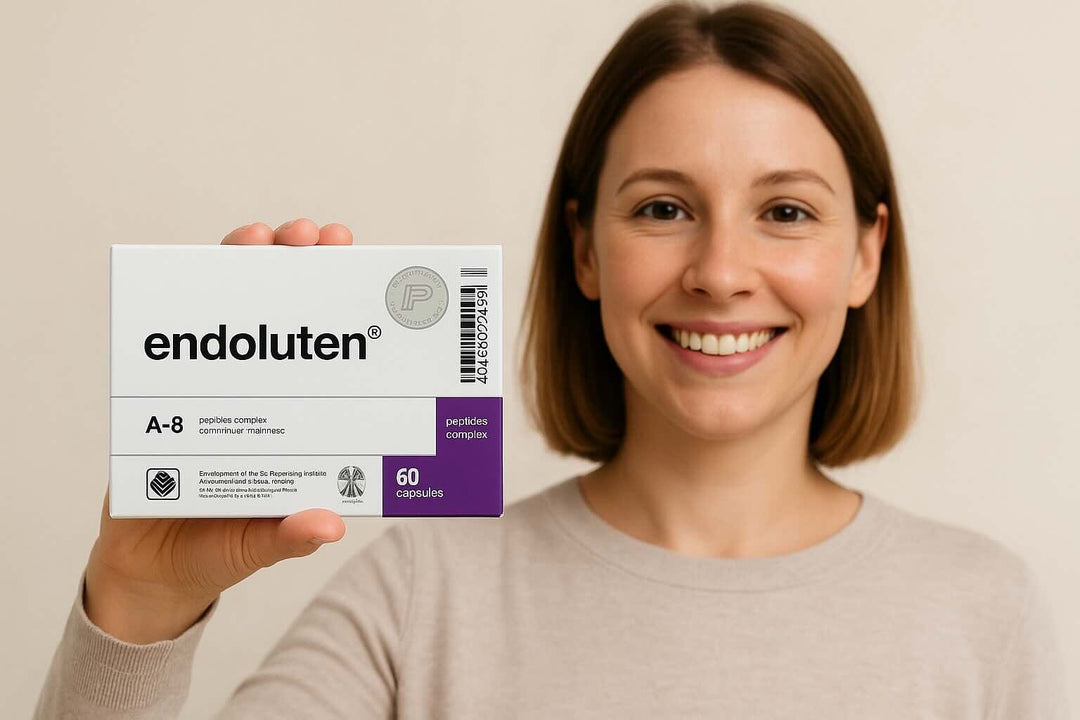A robust immune system is crucial to health throughout one’s lifetime for protection against disease-causing pathogens, infections, and cancer. Decades of research has shown that a well-researched and popular nutrient, vitamin C, is crucial to various aspects of immune function. But as we’ll see below, most adults fall short of obtaining optimal, or even adequate amounts of vitamin C in their diets, putting their immune systems and overall health in jeopardy.
What’s more, many have increased requirements for this nutrient due to the declining immunity associated with aging, unhealthy lifestyle factors like smoking, and conditions such as diabetes. The good news is, it’s possible bolster immunity with a targeted nutritional program that includes a generous daily dose of vitamin C as a core component, and Boost-Pro™, a high-potency vitamin C supplement, is ideal for this purpose. In this article we’ll examine the immune-enhancing and other benefits of ensuring optimal intake of vitamin C.
Some Background on Vitamin C
Vitamin C, also known as ascorbic acid, is an essential nutrient, meaning that it cannot be synthesized in the body and must be obtained from the diet (it occurs naturally in a variety of fruits and vegetables). Our physiologies rely on vitamin C for a wide range of functions including growth and repair of tissues; wound healing; maintenance of cartilage, bones, and teeth; collagen formation; and immune function − the focus of this article.
Vitamin C’s importance to immune function is partly based on its role as a potent antioxidant, donating electrons to protect key biomolecules from damage by oxidants generated during normal cell metabolism or through exposure to toxins and pollutants. It scavenges numerous Reactive Oxygen Species (known as “ROS”) such as superoxide and peroxyl radicals, hydrogen peroxide, hypochlorous acid, and oxidant air pollutants, and can regenerate other antioxidants, including glutathione and vitamin E. Vitamin C also functions as a cofactor for various enzymes.
Decades of research, including that of the famous Dr. Linus Pauling, have shown vitamin C to be crucial to various aspects of the immune system, as we’ll see below.
Professor Linus Pauling, (1901-1994) was a twice Nobel Prize Laureate and expert on vitamin C.
Vitamin C’s Diverse Roles in the Immune System
The immune system is a sophisticated network of specialized organs, tissues, cells, proteins, and chemicals that protects against pathogens such as bacteria, viruses, fungi, and parasites, as well as cancer cells, and it relies on adequate stores of vitamin C. There are two arms of the immune system, the innate and adaptive. The innate or nonspecific immune system provides a broad first line of defense against pathogens. The adaptive or specific immune system consists of highly specialized white blood cells called T- and B- lymphocytes, which can detect microbes in a very precise way, store their identity in “memory,” and recognize them when and if they are encountered again.
Vitamin C’s immune-modulating actions include:
Protecting the skin from pathogens. Vitamin C also reduces the impact of environmental pollutants and enhances collagen synthesis, both of which are essential to healthy, younger-looking skin, and speeds wound healing.
Accumulating in white blood cells such as neutrophils and macrophages, which are cells of the innate immune system. Neutrophils are responsible for migrating to the site of wound or infection, engulfing invading pathogens, and killing them via the release of antimicrobial proteins and ROS (thus subjecting pathogens to overwhelming oxidative stress). Once the neutrophils have completed their microbe-killing task, they undergo apoptosis (programmed cell death) and are cleared by macrophages. Vitamin C influences each of these functions carried out by neutrophils and macrophages.
Accumulating in B- and T- lymphocytes and enhancing differentiation and proliferation of these cells of the adaptive immune system.
Reducing inflammation by regulating cytokine production and decreasing histamine levels. Cytokines are cell signaling molecules secreted by a variety of immune cells, (both innate and adaptive) in response to infection and inflammation. Histamine is a chemical produced during an immune response that causes inflammation and vasodilation, leading to allergic symptoms such as runny nose and eyes. Studies show that vitamin C influences the production of pro- and anti-inflammatory cytokines and lowers elevated histamine levels.
Stimulating NK cells (a type of white blood cell of the innate immune system that provides a rapid “first” response to infected cells) and increasing antibody activity.
The structure of L-ascorbic acid (vitamin C).
Since Vitamin C plays such a fundamental and varied role in so many aspects of immune function, it follows that deficiency results in impaired resistance and greater susceptibility to infections. Unfortunately, as previously noted, most adults are lacking in the vitamin, for various reasons.
Inadequate Vitamin C Intake and Other Causes of Deficiency
Vitamin C is water-soluble, and therefore not stored in the body for long periods of time, requiring regular intake (i.e., once or several times a day) to obtain substantial or even adequate blood levels. The Recommended Dietary Allowance (RDA) for vitamin C is set at only 75 to 90 mg per day, which is extremely (even ridiculously) low according to most experts who advocate 500 mg minimum, up to gram quantities per day, (Linus Pauling supposedly consumed 12 g daily.)
A minimally set RDA combined with a general low consumption of fruits and vegetables leads to the common problem of insufficient vitamin C intake; most people simply do not consume the nine or more servings of fruits and vegetables a day necessary to obtain the variety of vitamins, minerals, and micronutrients at levels required for optimal health. And to reach higher, gram quantities of vitamin C, one would have to consume an abundance (i.e., approximately 16 to 18 or more servings a day) of fruits and vegetables, emphasizing the need for dietary supplementation to obtain these optimal levels.
Although the severe vitamin C depletion that results in the disease scurvy (characterized by bleeding, bruising, impaired wound healing, and poor resistance to infections) is a rarity in the 21st century, still, low plasma vitamin C levels are relatively common in the West, and vitamin C deficiency is the fourth leading nutrient deficiency in the US.
But it’s not just poor dietary habits and low intake that negatively impact vitamin C status; lifestyle factors such as smoking, drug use, heavy drinking, and exposure to pollutants all increase requirements for vitamin C by upsetting the oxidant/ antioxidant balance in the body, leading to the higher metabolic turnover of vitamin C to combat the increased oxidative stress.
In addition, certain diseases are associated with low vitamin C levels, including diabetes. Like the lifestyle factors we just examined, the high blood sugar characteristic of type 2 diabetes leads to increased production of ROS and higher requirements for Vitamin C. Interestingly, supplementation with vitamin C improves glycemic control in type-2 diabetes, perhaps due to the corresponding recovery of oxidant/ antioxidant balance.
Gastritis, pancreatitis, pneumonia, sepsis, arthritis, and cancer are other examples of diseases linked with low vitamin C status, as is aging.
Aging individuals are particularly susceptible to infections due to immunosenescence (aging of the immune system) and the poor vitamin C status characteristic of people in this age group, a “double whammy” that can sap immune function, putting those over the age of 60 at greater risk of cancer, pneumonia, and other dangerous diseases.
Aging is also associated with increased levels of oxidative stress due to the age-related decline of antioxidant capacity, which is in part due to low vitamin C blood concentrations. Restoring adequate levels of the vitamin may slow or counter the progression of immunosenescence and improve antioxidant capacity, providing a range of anti-aging benefits.
Besides the factors already mentioned, infections themselves, which are the result of poor vitamin C status to begin with, can cause plasma levels to further plummet. In the process of fighting pathogens, greater quantities of vitamin C are taken up by immune cells, causing plasma levels to fall, and requiring higher doses of vitamin C than daily maintenance doses to compensate for the metabolic demand.
Studies have shown that boosting vitamin C levels through supplementation can both prevent and treat several conditions and illnesses. In particular, let’s now look at respiratory infections.
Studies on Vitamin C and Respiratory Infections
Pneumonia, a common but potentially fatal respiratory infection, is associated with decreased plasma vitamin C concentrations. (18) Restoring levels through routine daily vitamin C supplementation has been shown to decrease the risk of developing the illness. (19,20)
When used as treatment, even a modest dose of 200 mg lowered the severity of symptoms in hospitalized patients with bronchitis and pneumonia, especially in those most deficient in vitamin C. (21) Another study found that vitamin C at doses up to one gram daily reduced the hospital stay of patients by 19% and doses up to 1.6 g daily cut in-patient time by 36%. (22) (It’s unfortunate the researchers stopped at 1.6 g; since the effect appears to be dose-related, it’s likely that higher doses of 3, 4, or 5 g would have drastically slashed time in the hospital.)
Vitamin C has also been shown to have impact on the most prevalent respiratory infection, the common cold. As with other infections, low vitamin C levels have been linked with increased cold duration and severity. (23) A meta-analysis evaluating only placebo-controlled trials testing doses of at least 200 mg daily showed that regular vitamin C supplementation reduced the severity and duration of the common cold, and, although it did not appear to decrease incidence of colds in the general population, it was shown cut the number of colds in those performing intense physical exercise (i.e., marathon runners, skiers, and soldiers on subarctic exercises) by an impressive 50 percent. (24) As far as treatment at the onset of cold symptoms, two controlled trials found a statistically significant dose-response effect on the duration of colds using high doses of up to 8 grams vitamin C daily. (20)
Recap: What We’ve Covered So Far
One of the main points we’ve covered is that vitamin C is a major player in the immune system, enabling it to launch and sustain an effective response against pathogens. We reviewed the causes of deficiency, and the consequences, including greater susceptibility to infections, and reviewed several studies documenting vitamin C’s potential to reduce the risk, severity, and duration of common respiratory infections. We also touched on the link between low vitamin C status and increased oxidative stress in diseases such as diabetes, and in aging, and the benefits of restoring vitamin C levels in these conditions.
But that’s not all: vitamin C also protects against cardiovascular disease, stroke, eye disease, skin aging, and cancer. And on this last note, intriguing recent research published in the journal Nature indicates that vitamin C may reduce the risk of leukemia by accumulating within hematopoietic (blood cell-forming) stem cells, regulating their number and function, and promoting the activity of a tumor-suppressor protein. (25) Ongoing research will likely uncover even more benefits of this multi-faceted nutrient.
It’s clear that ensuring adequate, or better yet, optimal intake of vitamin C, through diet and supplements, should be a health priority for all, and especially aging individuals and those at risk of deficiency, and Boost-Pro™ is a perfect supplement for this purpose. (Note: You should still strive to eat at least five servings of fruits and vegetables daily to obtain a full range of vitamins, minerals, and micronutrients.)
BOOST-PRO PHOTOS INCLUDING WATER/ DRINK HIGHLIGHT
Boost-Pro™ − a Novel and Convenient Formulation
Boost-Pro™ provides a hefty two grams of vitamin C. The product is formulated with GMS-Ribose™ (glycine methyl sulfone ribose) to maximize vitamin C absorption, assist heart health and aid the feeling of being energized. Two other ingredients, quercetin and MSM, further enhance this unique formulation.
Quercetin is a flavonoid antioxidant found in foods such as fruits, vegetables, tea and wine, with potential anticancer, anti-inflammatory, immune-enhancing, and antiaging activities. Like vitamin C, it scavenges highly reactive oxygens, which contributes to its beneficial health effects. In yeast and worms, studies show that quercetin increases the capacity to fight oxidative stress (a contributor to aging, as we saw earlier) and lengthens life span. (26,27)
Methylsulfonylmethane (MSM) is a naturally occurring sulfur compound and a popular dietary supplement shown to function as an anti-inflammatory and antioxidant. It’s most commonly used (in gram doses) to alleviate inflammation and joint and muscle pain associated with arthritis and other conditions, (28,29) though it has other applications, including the treatment of allergies. (30)
Boost-Pro™ is a pre-measured powder contained in individual sachets that can be mixed with water or your favorite juice, it’s a great addition to your supplement regimen in a convenient formulation that can be taken on the go.
Optimize your vitamin C status with Boost-Pro™ and gain all the benefits of this essential nutrient.
What’s more, many have increased requirements for this nutrient due to the declining immunity associated with aging, unhealthy lifestyle factors like smoking, and conditions such as diabetes. The good news is, it’s possible bolster immunity with a targeted nutritional program that includes a generous daily dose of vitamin C as a core component, and Boost-Pro™, a high-potency vitamin C supplement, is ideal for this purpose. In this article we’ll examine the immune-enhancing and other benefits of ensuring optimal intake of vitamin C.
Some Background on Vitamin C
Vitamin C, also known as ascorbic acid, is an essential nutrient, meaning that it cannot be synthesized in the body and must be obtained from the diet (it occurs naturally in a variety of fruits and vegetables). Our physiologies rely on vitamin C for a wide range of functions including growth and repair of tissues; wound healing; maintenance of cartilage, bones, and teeth; collagen formation; and immune function − the focus of this article.
Vitamin C’s importance to immune function is partly based on its role as a potent antioxidant, donating electrons to protect key biomolecules from damage by oxidants generated during normal cell metabolism or through exposure to toxins and pollutants. It scavenges numerous Reactive Oxygen Species (known as “ROS”) such as superoxide and peroxyl radicals, hydrogen peroxide, hypochlorous acid, and oxidant air pollutants, and can regenerate other antioxidants, including glutathione and vitamin E. Vitamin C also functions as a cofactor for various enzymes.
Decades of research, including that of the famous Dr. Linus Pauling, have shown vitamin C to be crucial to various aspects of the immune system, as we’ll see below.
Professor Linus Pauling, (1901-1994) was a twice Nobel Prize Laureate and expert on vitamin C.
Vitamin C’s Diverse Roles in the Immune System
The immune system is a sophisticated network of specialized organs, tissues, cells, proteins, and chemicals that protects against pathogens such as bacteria, viruses, fungi, and parasites, as well as cancer cells, and it relies on adequate stores of vitamin C. There are two arms of the immune system, the innate and adaptive. The innate or nonspecific immune system provides a broad first line of defense against pathogens. The adaptive or specific immune system consists of highly specialized white blood cells called T- and B- lymphocytes, which can detect microbes in a very precise way, store their identity in “memory,” and recognize them when and if they are encountered again.
Vitamin C’s immune-modulating actions include:
Protecting the skin from pathogens. Vitamin C also reduces the impact of environmental pollutants and enhances collagen synthesis, both of which are essential to healthy, younger-looking skin, and speeds wound healing.
Accumulating in white blood cells such as neutrophils and macrophages, which are cells of the innate immune system. Neutrophils are responsible for migrating to the site of wound or infection, engulfing invading pathogens, and killing them via the release of antimicrobial proteins and ROS (thus subjecting pathogens to overwhelming oxidative stress). Once the neutrophils have completed their microbe-killing task, they undergo apoptosis (programmed cell death) and are cleared by macrophages. Vitamin C influences each of these functions carried out by neutrophils and macrophages.
Accumulating in B- and T- lymphocytes and enhancing differentiation and proliferation of these cells of the adaptive immune system.
Reducing inflammation by regulating cytokine production and decreasing histamine levels. Cytokines are cell signaling molecules secreted by a variety of immune cells, (both innate and adaptive) in response to infection and inflammation. Histamine is a chemical produced during an immune response that causes inflammation and vasodilation, leading to allergic symptoms such as runny nose and eyes. Studies show that vitamin C influences the production of pro- and anti-inflammatory cytokines and lowers elevated histamine levels.
Stimulating NK cells (a type of white blood cell of the innate immune system that provides a rapid “first” response to infected cells) and increasing antibody activity.
The structure of L-ascorbic acid (vitamin C).
Since Vitamin C plays such a fundamental and varied role in so many aspects of immune function, it follows that deficiency results in impaired resistance and greater susceptibility to infections. Unfortunately, as previously noted, most adults are lacking in the vitamin, for various reasons.
Inadequate Vitamin C Intake and Other Causes of Deficiency
Vitamin C is water-soluble, and therefore not stored in the body for long periods of time, requiring regular intake (i.e., once or several times a day) to obtain substantial or even adequate blood levels. The Recommended Dietary Allowance (RDA) for vitamin C is set at only 75 to 90 mg per day, which is extremely (even ridiculously) low according to most experts who advocate 500 mg minimum, up to gram quantities per day, (Linus Pauling supposedly consumed 12 g daily.)
A minimally set RDA combined with a general low consumption of fruits and vegetables leads to the common problem of insufficient vitamin C intake; most people simply do not consume the nine or more servings of fruits and vegetables a day necessary to obtain the variety of vitamins, minerals, and micronutrients at levels required for optimal health. And to reach higher, gram quantities of vitamin C, one would have to consume an abundance (i.e., approximately 16 to 18 or more servings a day) of fruits and vegetables, emphasizing the need for dietary supplementation to obtain these optimal levels.
Although the severe vitamin C depletion that results in the disease scurvy (characterized by bleeding, bruising, impaired wound healing, and poor resistance to infections) is a rarity in the 21st century, still, low plasma vitamin C levels are relatively common in the West, and vitamin C deficiency is the fourth leading nutrient deficiency in the US.
But it’s not just poor dietary habits and low intake that negatively impact vitamin C status; lifestyle factors such as smoking, drug use, heavy drinking, and exposure to pollutants all increase requirements for vitamin C by upsetting the oxidant/ antioxidant balance in the body, leading to the higher metabolic turnover of vitamin C to combat the increased oxidative stress.
In addition, certain diseases are associated with low vitamin C levels, including diabetes. Like the lifestyle factors we just examined, the high blood sugar characteristic of type 2 diabetes leads to increased production of ROS and higher requirements for Vitamin C. Interestingly, supplementation with vitamin C improves glycemic control in type-2 diabetes, perhaps due to the corresponding recovery of oxidant/ antioxidant balance.
Gastritis, pancreatitis, pneumonia, sepsis, arthritis, and cancer are other examples of diseases linked with low vitamin C status, as is aging.
Aging individuals are particularly susceptible to infections due to immunosenescence (aging of the immune system) and the poor vitamin C status characteristic of people in this age group, a “double whammy” that can sap immune function, putting those over the age of 60 at greater risk of cancer, pneumonia, and other dangerous diseases.
Aging is also associated with increased levels of oxidative stress due to the age-related decline of antioxidant capacity, which is in part due to low vitamin C blood concentrations. Restoring adequate levels of the vitamin may slow or counter the progression of immunosenescence and improve antioxidant capacity, providing a range of anti-aging benefits.
Besides the factors already mentioned, infections themselves, which are the result of poor vitamin C status to begin with, can cause plasma levels to further plummet. In the process of fighting pathogens, greater quantities of vitamin C are taken up by immune cells, causing plasma levels to fall, and requiring higher doses of vitamin C than daily maintenance doses to compensate for the metabolic demand.
Studies have shown that boosting vitamin C levels through supplementation can both prevent and treat several conditions and illnesses. In particular, let’s now look at respiratory infections.
Studies on Vitamin C and Respiratory Infections
Pneumonia, a common but potentially fatal respiratory infection, is associated with decreased plasma vitamin C concentrations. (18) Restoring levels through routine daily vitamin C supplementation has been shown to decrease the risk of developing the illness. (19,20)
When used as treatment, even a modest dose of 200 mg lowered the severity of symptoms in hospitalized patients with bronchitis and pneumonia, especially in those most deficient in vitamin C. (21) Another study found that vitamin C at doses up to one gram daily reduced the hospital stay of patients by 19% and doses up to 1.6 g daily cut in-patient time by 36%. (22) (It’s unfortunate the researchers stopped at 1.6 g; since the effect appears to be dose-related, it’s likely that higher doses of 3, 4, or 5 g would have drastically slashed time in the hospital.)
Vitamin C has also been shown to have impact on the most prevalent respiratory infection, the common cold. As with other infections, low vitamin C levels have been linked with increased cold duration and severity. (23) A meta-analysis evaluating only placebo-controlled trials testing doses of at least 200 mg daily showed that regular vitamin C supplementation reduced the severity and duration of the common cold, and, although it did not appear to decrease incidence of colds in the general population, it was shown cut the number of colds in those performing intense physical exercise (i.e., marathon runners, skiers, and soldiers on subarctic exercises) by an impressive 50 percent. (24) As far as treatment at the onset of cold symptoms, two controlled trials found a statistically significant dose-response effect on the duration of colds using high doses of up to 8 grams vitamin C daily. (20)
Recap: What We’ve Covered So Far
One of the main points we’ve covered is that vitamin C is a major player in the immune system, enabling it to launch and sustain an effective response against pathogens. We reviewed the causes of deficiency, and the consequences, including greater susceptibility to infections, and reviewed several studies documenting vitamin C’s potential to reduce the risk, severity, and duration of common respiratory infections. We also touched on the link between low vitamin C status and increased oxidative stress in diseases such as diabetes, and in aging, and the benefits of restoring vitamin C levels in these conditions.
But that’s not all: vitamin C also protects against cardiovascular disease, stroke, eye disease, skin aging, and cancer. And on this last note, intriguing recent research published in the journal Nature indicates that vitamin C may reduce the risk of leukemia by accumulating within hematopoietic (blood cell-forming) stem cells, regulating their number and function, and promoting the activity of a tumor-suppressor protein. (25) Ongoing research will likely uncover even more benefits of this multi-faceted nutrient.
It’s clear that ensuring adequate, or better yet, optimal intake of vitamin C, through diet and supplements, should be a health priority for all, and especially aging individuals and those at risk of deficiency, and Boost-Pro™ is a perfect supplement for this purpose. (Note: You should still strive to eat at least five servings of fruits and vegetables daily to obtain a full range of vitamins, minerals, and micronutrients.)
BOOST-PRO PHOTOS INCLUDING WATER/ DRINK HIGHLIGHT
Boost-Pro™ − a Novel and Convenient Formulation
Boost-Pro™ provides a hefty two grams of vitamin C. The product is formulated with GMS-Ribose™ (glycine methyl sulfone ribose) to maximize vitamin C absorption, assist heart health and aid the feeling of being energized. Two other ingredients, quercetin and MSM, further enhance this unique formulation.
Quercetin is a flavonoid antioxidant found in foods such as fruits, vegetables, tea and wine, with potential anticancer, anti-inflammatory, immune-enhancing, and antiaging activities. Like vitamin C, it scavenges highly reactive oxygens, which contributes to its beneficial health effects. In yeast and worms, studies show that quercetin increases the capacity to fight oxidative stress (a contributor to aging, as we saw earlier) and lengthens life span. (26,27)
Methylsulfonylmethane (MSM) is a naturally occurring sulfur compound and a popular dietary supplement shown to function as an anti-inflammatory and antioxidant. It’s most commonly used (in gram doses) to alleviate inflammation and joint and muscle pain associated with arthritis and other conditions, (28,29) though it has other applications, including the treatment of allergies. (30)
Boost-Pro™ is a pre-measured powder contained in individual sachets that can be mixed with water or your favorite juice, it’s a great addition to your supplement regimen in a convenient formulation that can be taken on the go.
Optimize your vitamin C status with Boost-Pro™ and gain all the benefits of this essential nutrient.





